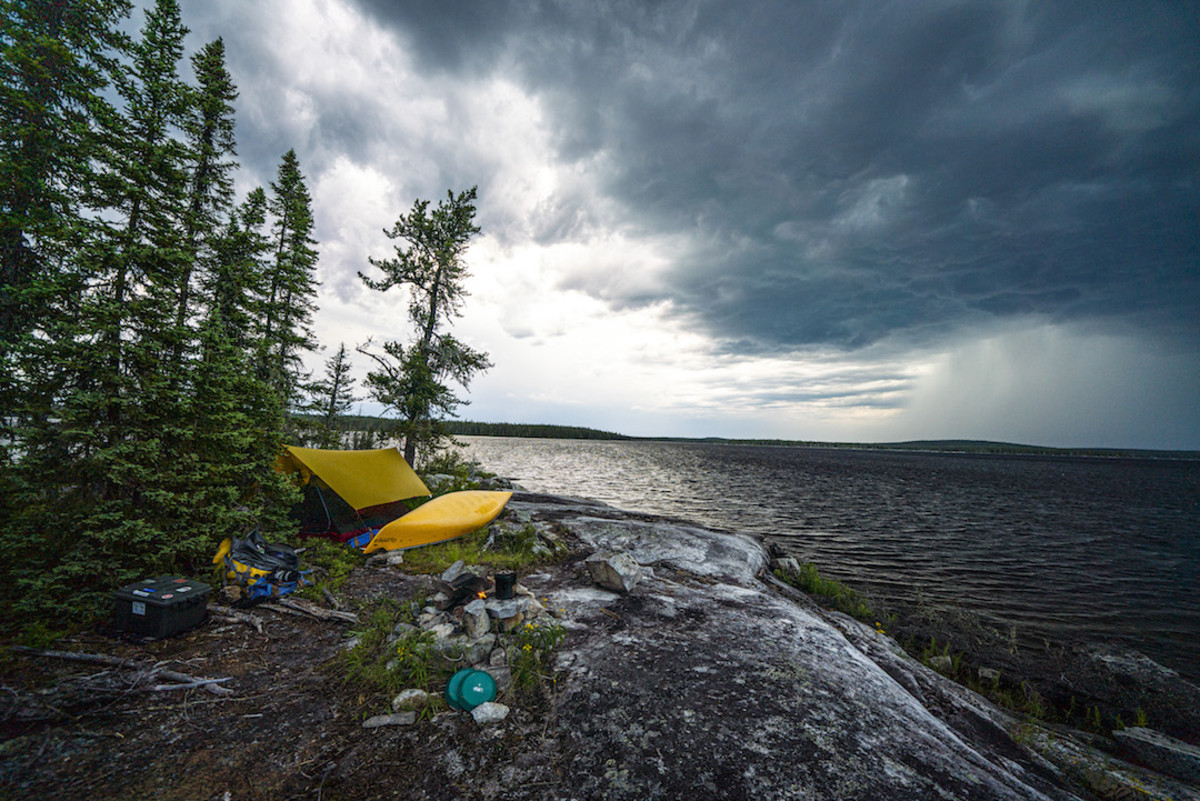
If you’ve traveled much in a land of lakes and rivers, you know the troubles that worry even the most seasoned wilderness trippers: overgrown portages, hungry bugs, storms or shorelines that force you to camp in less-than-ideal situations. For these reasons, a good tent and tarp will keep you from having to end your day cold, wet, and bug-bitten. A dry tent in a downpour doubles as an oasis amid a fierce bug cloud; just as a tarp can be your ticket to lighting a fire during days of rain, or reprieve enough to add layers and escape the chill of a damp woods. For paddlers, a tent and tarp are vital, and there are a few setups that check all the required boxes and cover all the contingencies you might hope to encounter.
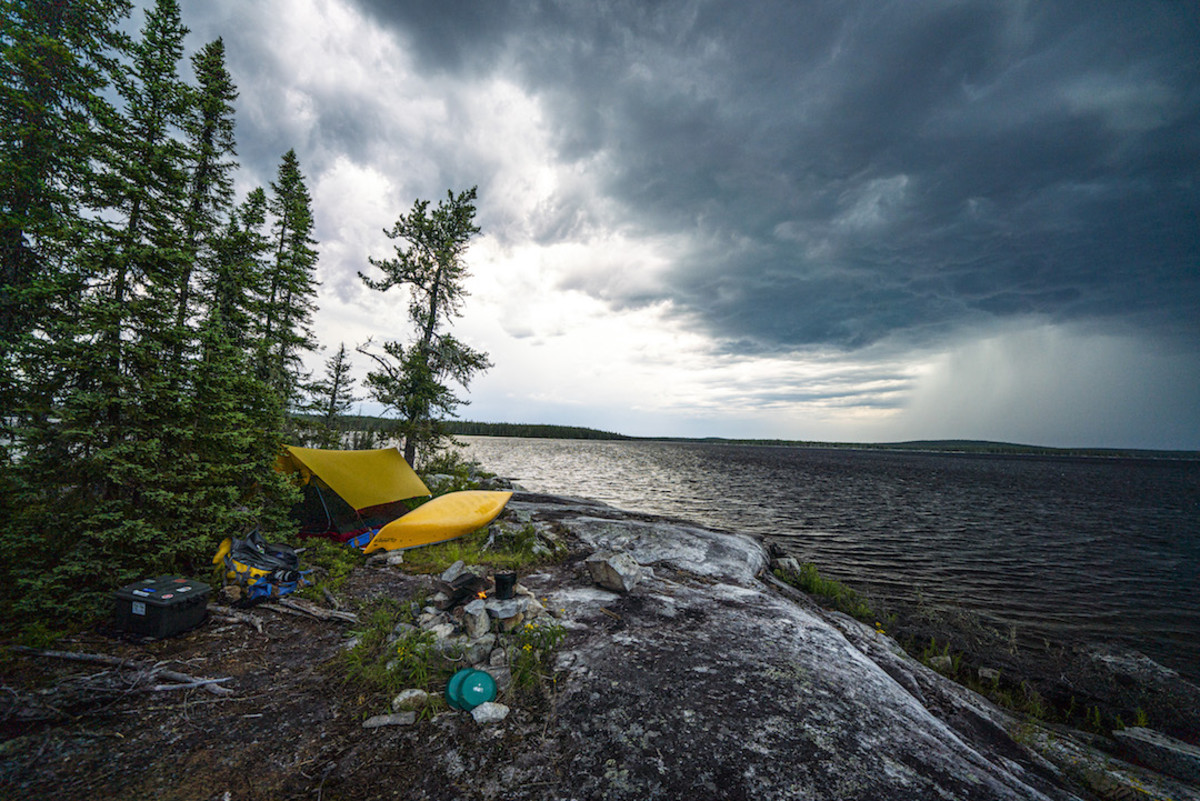
100 Wing Shelter
There’s a term that we throw around and it refers to the ninja skills and downright creativity that sometimes go into rigging up a trustworthy tarp. We call it tarp-ology. And while it might not be a real word, it’s sure to find its way into your vocabulary after feeling the satisfaction of a well-placed, tight tarp. The tricks involved in rigging are ones best learned through trial and error, but the need for a reliable tarp is essential.
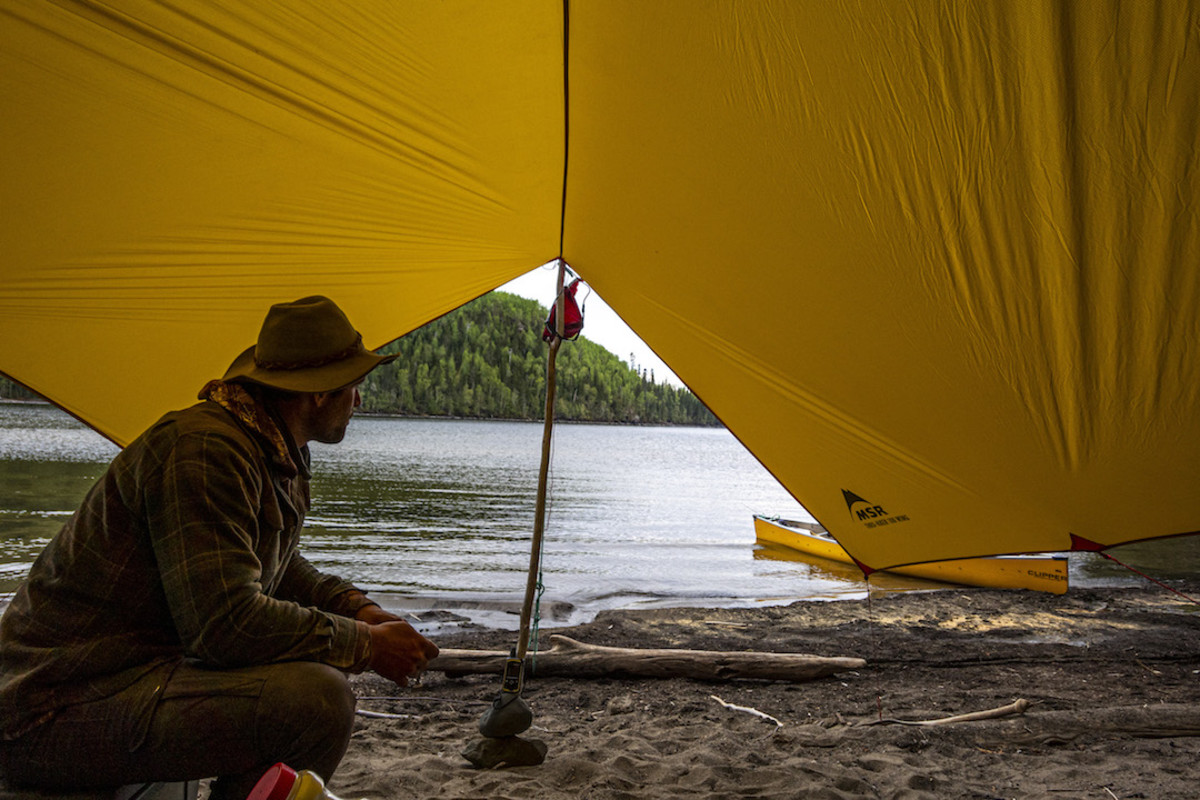
Key features such as tight stitching of lashing points mean you can tighten your tarp until the strings play like a banjo, without ripping fabric or attachments. Tautness is crucial if you have a wind, or a heavy rain, because keeping tight fabric free of sagging means less saturation for the people beneath. At slightly over one pound, the MSR 100 Wing Shelter is the perfect combination of minimal, lightweight portability and bombproof toughness you learn to rely on during paddling trips.
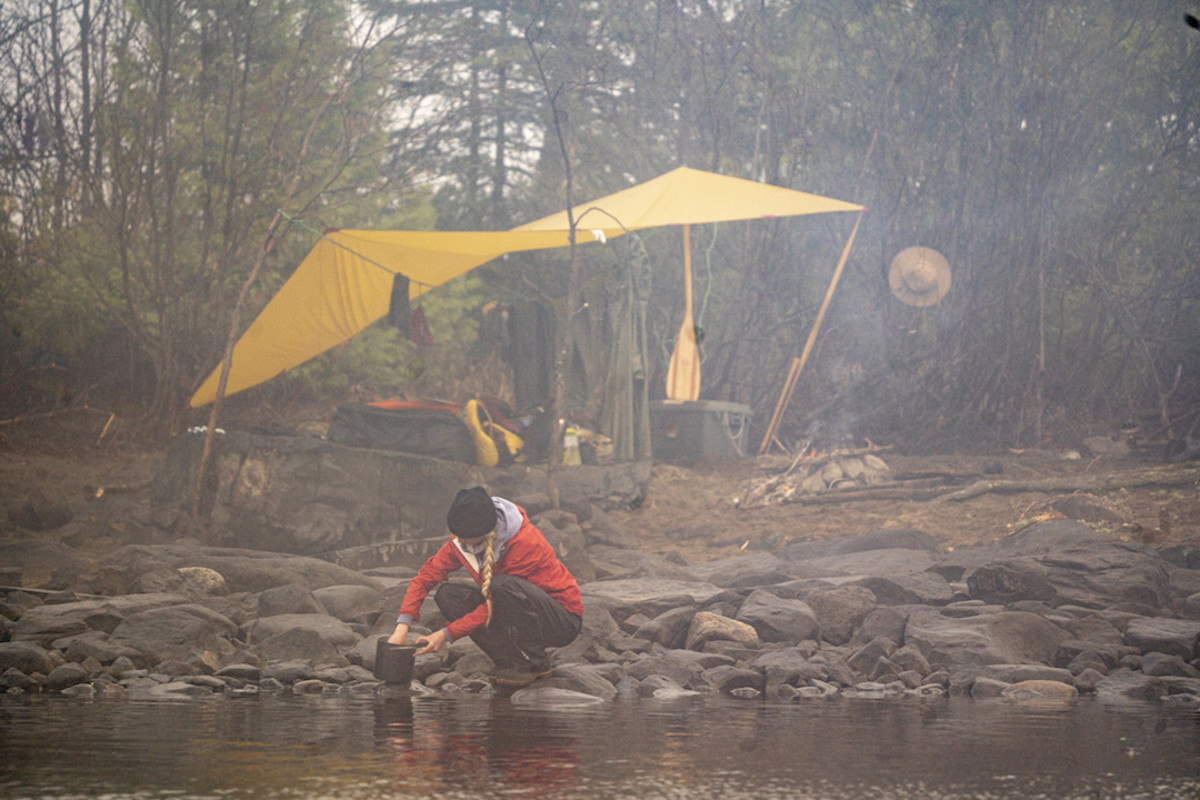
The A-frame design means that rigging can be downright easy—one can secure the ridge lashing points to two sturdy anchors, and raise, via metal grommets, to either a paddle, trees, or hiking poles, to create the tarps center line. The grommets mean that you don’t risk supporting your tarps fabric with things that rip the material, and it means all the additional lashing points can be safely secured to whatever is available, be it stakes, rocks, or even a canoe. When it’s packed down, the tarp is a little bigger than a fist and sits easily in the top of a pack, where it’s ready to be deployed at a moment’s notice.

Thru-Hiker Mesh House
The best part about the 100 Wing tarp is that it is designed not only as a standalone tarp, but also a companion to the ultra-lightweight Thru-Hiker Mesh House. When you’ve finagled your tarp-ology into the perfect rig, you can simply set up an A-frame bug shelter underneath. This gives you a dry floor to sleep on and tightly woven bug mesh exterior keeps black flies and mosquitoes where they should be, outside.

With the freedom of not having to carry tent poles, you can set up the shelter in almost any environment, and on starry nights, it means you can lie in the safety of your bug oasis and still gaze upon the world above. It’s a shelter we keep tucked away in our pack for those perfect nights because it weighs just 14 ounces, occupies so little space in our pack, and on nights when we just need a place to keep us bug-free, we can set it up in less than one minute and take it down just as fast.
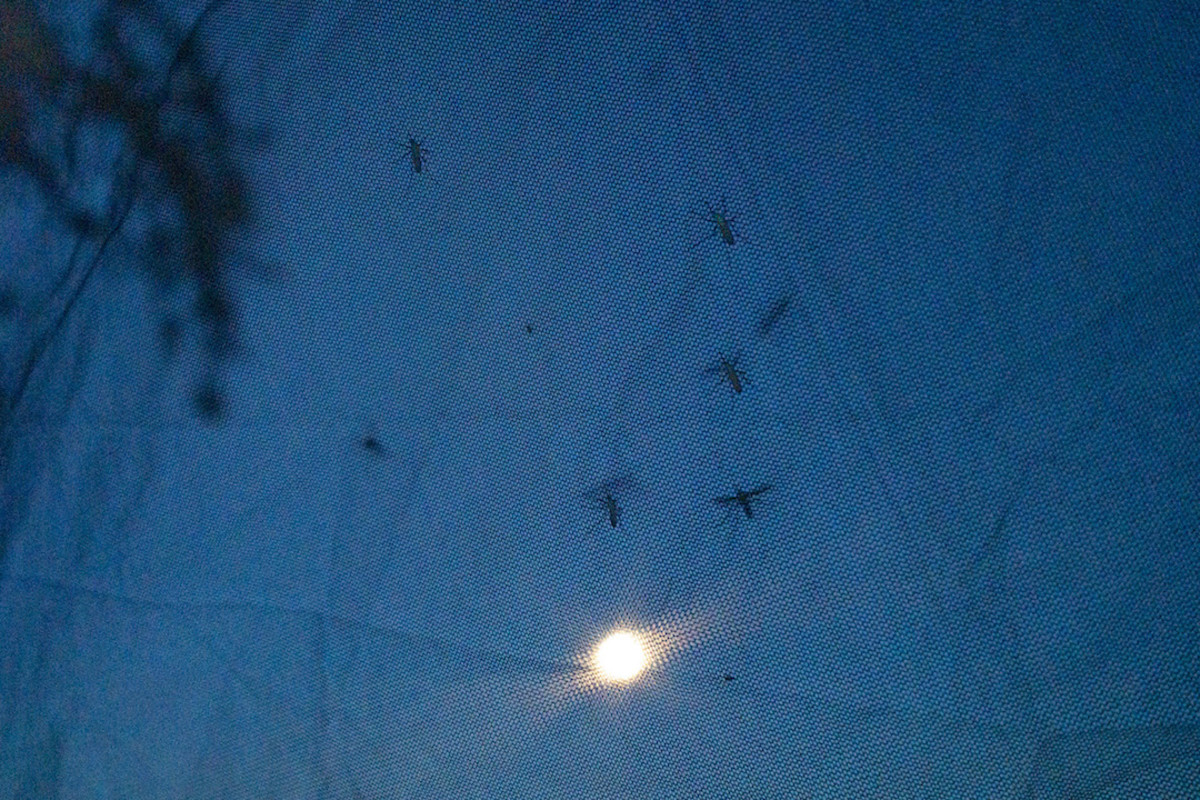
The tarp and shelter combined are a paddler’s lightweight duo that, especially on shorter outings where a little rain might be in the forecast, means you can feasibly travel with less than a 2-pound packed load–with no poles to factor in the bag-stuffing. And it’s one that lets you be closer to the environment you love.
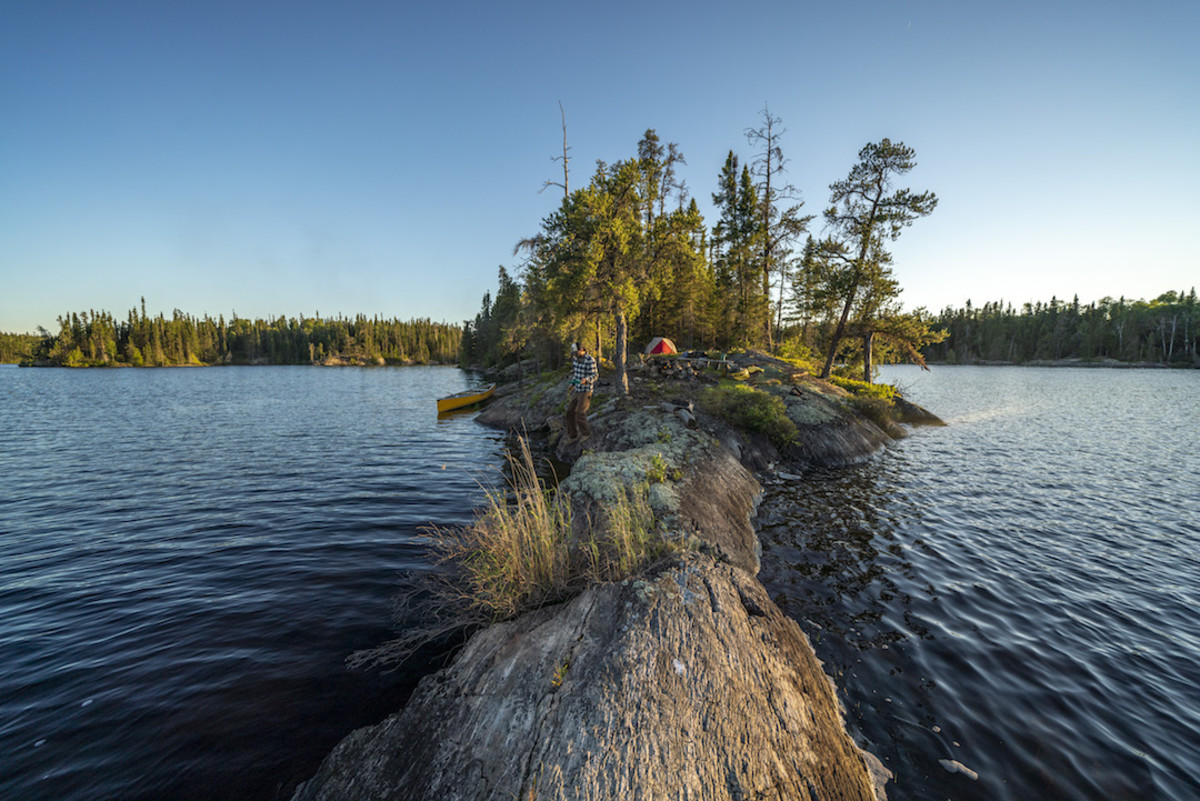
Mutha Hubba
The thing about paddling trips is that we have to prepare for everything we know could happen: high winds, above-and-beyond rain, bugs, or cold. The struggle is that if you’re wind-bound, you want a tent spacious enough to hang out comfortably inside. However, if a tent is too big and not designed for heavy weather, it becomes a liability to rip or be destroyed.
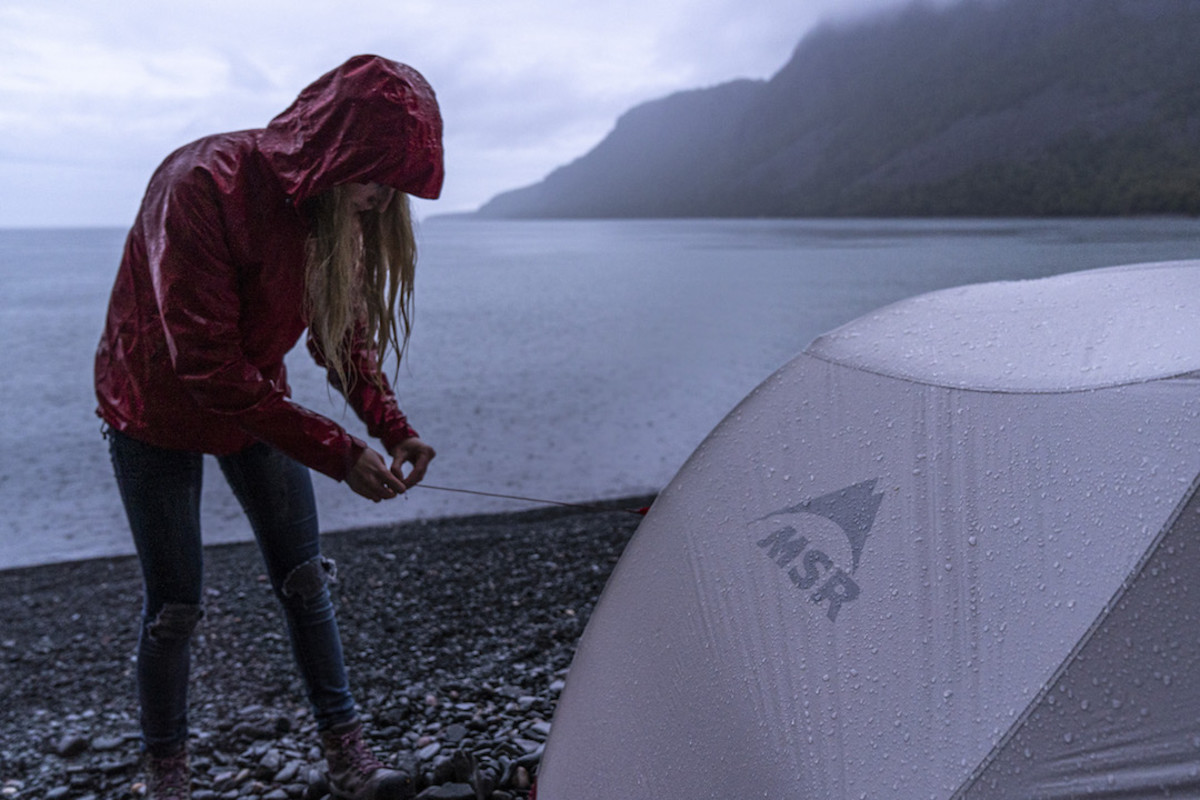
The MSR Mutha Hubba takes big space and puts it inside a storm-proof, Xtreme Shield shell. The tunnel design means that the tent can be set up to face into the prevailing wind, not only maximizing airflow, but allowing wind to travel over the tent’s body without the fear of collapsing. The guy-outs, when fastened to the Easton Syclone poles, creates an almost indestructible bond if secured to good tie-downs like trees or large rocks. Beyond structural integrity, having two vestibules is the most important design feature that paddlers need to pay attention to. Having the freedom to designate one area for wet gear or packs, while the other side can be for your view of the lake, is a small touch that makes a tent become your home away from home.
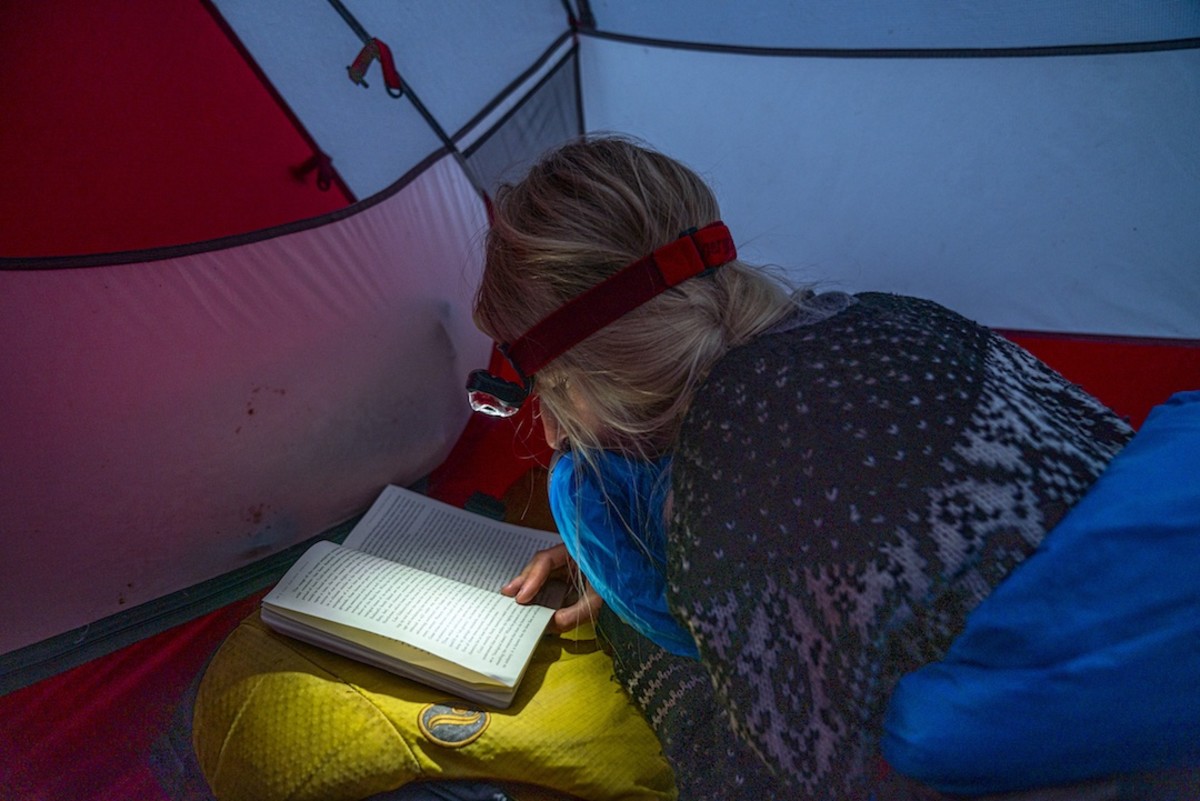
Foul weather aside, tents are our humble abode at nature’s doorstep. Some evenings, we read to the crashing of a moose in a nearby swamp, like a busy neighbor you don’t mind to hear. Other times, the song of a Swainson’s thrush can lull us back to sleep in the early morning hours. The one thing that never ceases to amaze, however, is how we often find ourselves looking at our cozy tent, just out of reach of the fires sparks, or tucked neatly inside a cedar grove, our home away from home in the wilderness we love, a tool to access the inaccessible.

See more of David Jackson‘s prior work for Canoe & Kayak:
For access to exclusive gear videos, celebrity interviews, and more, subscribe on YouTube!






